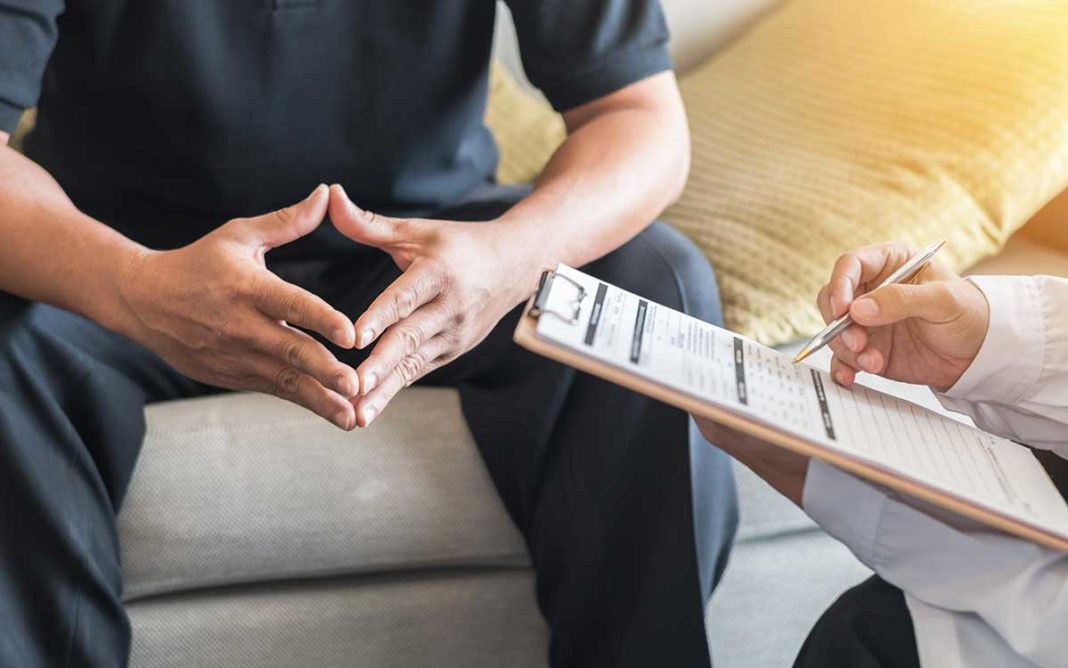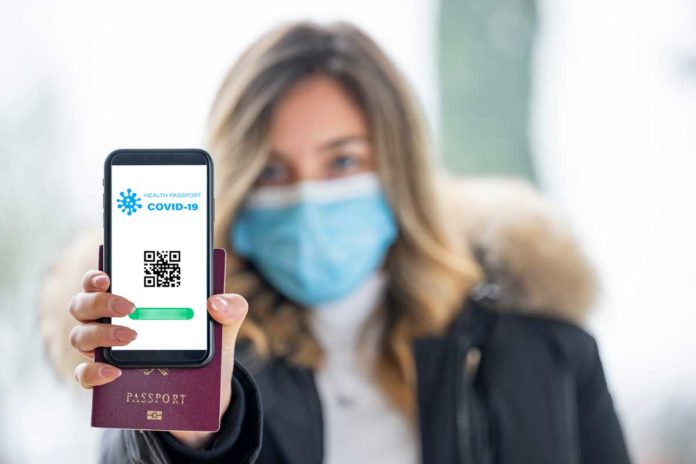MANITOULIN – Policing has never been harder than it is today, both with what’s going on in the world and the way police are perceived. Calls for service have been increasing for mental health and addiction related issues, including a rising number of overdose deaths. The COVID-19 pandemic added an additional layer of stress. Police culture has typically stigmatized its own members who have experienced mental health issues, burnout and PTSD. That’s slowly changing.
“The impact of COVID-19 on the world and on policing was unbelievable,” UCCM Anishnaabe Police Services’ Acting Chief of Police James Killeen told attendees at their annual general meeting in July. “What happened in the United States with the killing of George Floyd was felt not just in the United States, but across North America. When you combine that with COVID-19, there’s an unbelievable amount of negativity on the policing world in general, and there’s an incredible amount of mental stress that happens with that.”
Acting Police Chief Killeen has been a police officer for 23 years, 22 of those with the Greater Sudbury Police Service (GSPS). “My coaching officer when I started with the GSPS had been hired back in the 1960s. Imagine the changes he’d gone through: computers, modern weapons. A massive amount of change. He pulled me aside to tell me it was okay to have mental health issues, but never tell anyone.”
He’s watched attitudes change toward police officers and personnel to the point that his own family was scared to admit that their father was a police officer. “We saw that throughout our police service,” he said. “It changed the way officers dealt with the public. It changed the fact that they stopped wanting to talk to the public.”
The UCCM Police service was a big part of the draw that led Acting Chief Killeen to Manitoulin Island. The majority of his career was in drug investigation, intelligence and organized crime. He saw there was a need for him to use his experience to try and help combat that problem. “I also looked at the community need for a police service and a need to support that service and to support the officers,” he said. “There’s a massive amount of stress on officers. They’re expected to do a lot but with only a few personnel.”
That need to support the officers was highlighted by the shooting death last year of OPP Constable Marc Hovingh. “It was shocking to the whole Island and to all three police services. It shouldn’t have happened, ever. Three UCCM officers were directly involved. They were first on the scene,” he said. “Nobody wants to talk about it. It affects all of us and the community as a whole.”
The supports weren’t initially in place for those officers. A crisis worker was brought in by Inspector Cori Slaughter and a peer support program is in development. “It’s important to look out for each other, our civilian staff too, so that we are able to help people externally,” he said.
An unprecedented number of police suicides in Ontario in 2018 led to an expert panel review initiated by the Office of the Chief Coroner of Ontario. A report released in November 2019 noted that while one in five Canadians have some form of mental health illness, police suffer from both stigma and self-stigma in seeking help. As a profession, police have extraordinary responsibilities and are held to high levels of accountability. Mental health issues can have life or death consequences. There is also the fear of letting down the team or feeling a loss of identity as a police officer, the panel report said, noting that cultural change was needed.
Constable James Jefferson of the GSPS experienced a traumatic event on the job that left him unable to work for three-and-a-half years. It ended up being the catalyst to look into the mental health side of policing and dig for answers. “There was no support, there was nothing really helping me,” he said. “I had to figure it out on my own and do it myself so I don’t want to see any other officers, or civilians for that matter, go through it.”
He made a pitch to create a wellness coordinator position within the GSPS. It was based on providing the supports he had lacked. “I understood what it is people with PTSD and trauma and mental health need,” he said.
His chief had an open mind. “He understood. He saw my vision. He saw my passion. It was a big thing because he took a chance on me. I didn’t know if it would work or not. That took a huge leap of faith,” Constable Jefferson said. “They gave me the freedom to evolve the position in a way that I saw it. It was an outside of the box thought. The stars aligned. Everything felt right and it’s worked out.”
“The policing profession has never been harder than it is today with what’s going on in the world and in the way we’re perceived,” he said. “We’re locked into one specific ideal of what policing is. It’s been hard on our officers. Figure in a pandemic and the added stress of making sure you’re safe, then add in further trauma from going to the traumatic calls and the mental health calls that just seem to be ramping up.” On top of that, there’s an animosity against police right now. “It’s a recipe for burnout. It’s a recipe for trauma. There’s never been more pressure on police. We see the residual effects of what they’re experiencing and how it’s impacting their mental health.”
Burnout is a real thing. Officers are off sick and others have to pick up the slack. “The common narrative is we’re usually running short but the calls just keep coming in. It is a cycle,” said Constable Jefferson. Acting Chief Killeen said the cycle is the same for all three police services on the Island.
“We need to make sure we get people who go off work and come back to work healthy, not to come back to work just to get back to work,” Constable Jefferson said. “There has to be more of a systematic approach on when you’re returning and if you’re in a healthy mindset to do so.”
His approach is transparency and vulnerability. He makes it a point to be honest about his own experience. “Vulnerability creates vulnerability and I saw very early on that just by telling my story the impact it had and how it forced people to look inside themselves and get help or reach out for help.”
The biggest hurdle in policing is getting that messaging out there. GSPS officers know and respect Constable Jefferson so when he talks about mental health, his credibility as an officer helps to eradicate the stigma. People think it’s okay to feel anxiety, depression and suicidal ideations because someone credible has been open about feeling those things.
His role involves keeping an eye on everyone in the service and understanding who is going off, why and what he can do to help them improve through the right method of therapy and support so they can return to work. He let’s them know they’re not really alone. “For people going off work, it’s terrifying,” he said. It’s quite the opposite of a vacation. It’s now 24 hours of the day that your mind doesn’t have distractions and you’ve got to face all of your fears, all of your trauma and all of your suppression. It’s overwhelming, so to have someone they can rely on and can reach out to has really shown a positive impact.”
Studies and statistics have shown that peer support has one of the biggest positive impacts on first responders because it’s hard to overcome the stigma and fear of judgement and reach out. “Peer to peer support is the easiest and quickest way to really know what they’re going through,” Constable Jefferson explained.
It’s not quite the same as peer support, he explained. Peer support is voluntary, where officers and staff give support at the same time as they’re performing their regular duties, taking calls or spending time with their families. “What I do is almost like a hybrid of peer support and a rehabilitative therapist because I do exposure. I get them out of the house. It’s not just me talking. It’s finding out where their fears lie, what are their barriers and for some who’ve been off work for a certain amount of time, even returning to the station is a barrier.”
“It’s not just a one and done approach,” the constable added. “We think we can just typecast and send someone to the exact same therapist and get the exact same result but it’s the complete opposite. You have to understand how someone ticks and that’s how I’ve had a lot of success.”
This is a calling, he said. He works during holidays, in his off time and in the evenings. “Life is too busy not to have someone watch over our responding officers and our civilians. In the services across the province it’s starting to be recognized. Mental health is that important.”






